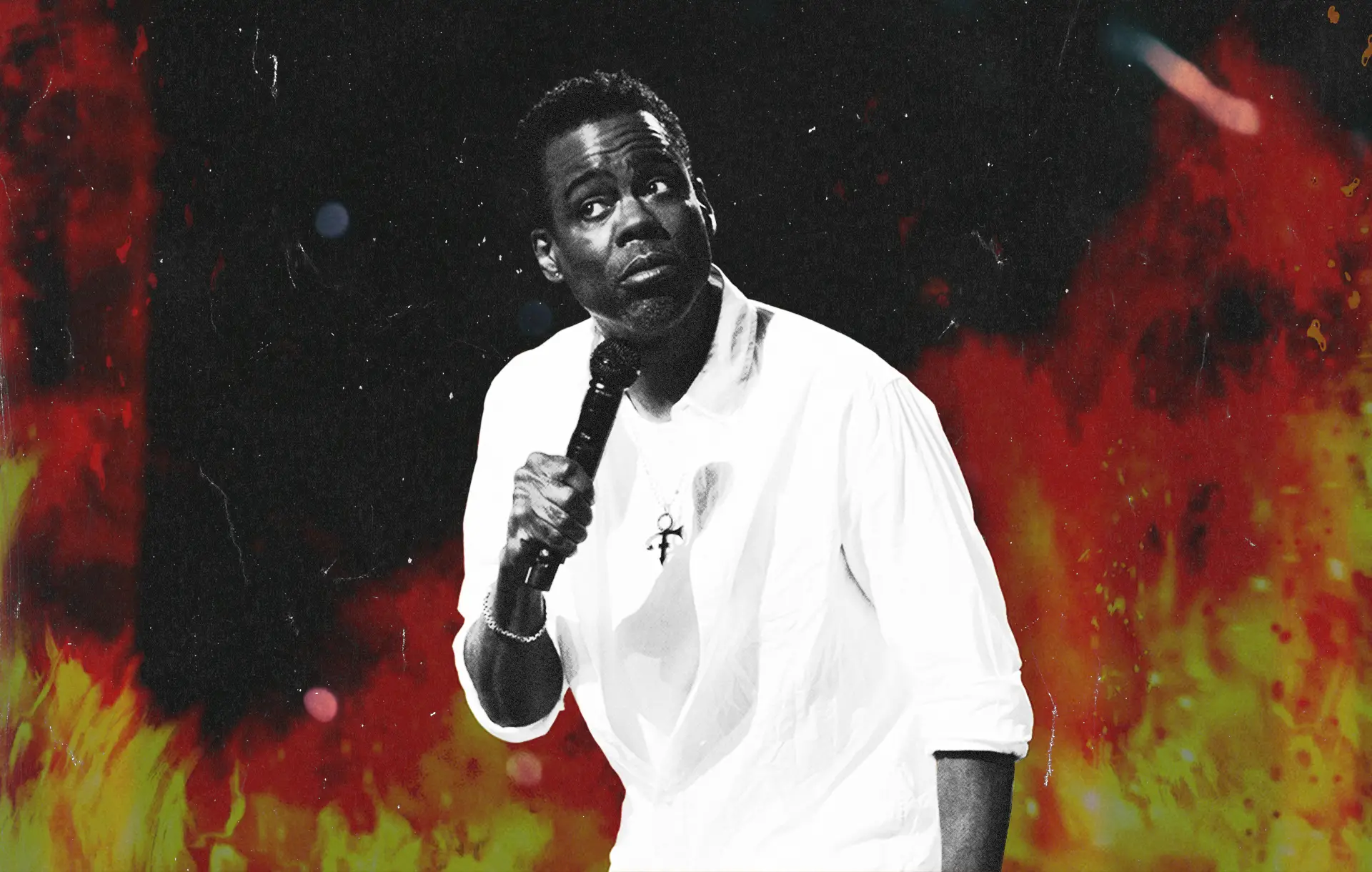In what’s pretty clearly the stand-up comedy event of the year, Chris Rock debuted his new special, Selective Outrage, on Saturday night on Netflix. It was both the first live stand-up special and the first major live event, in Netflix history, and it appeared to go off without a hitch, technology-wise.
I’m a longtime Rock fan, and his early work (the Bring the Pain/Bigger and Blacker era) is among my favorite comedy of all time. The new special features flashes of his best work, and I did laugh quite a bit, although Selective Outrage did have a bit more older-man-lashes-out-at-kids-these-days material for my taste. It’s fine, although no one will confuse it with his best material.
About 95 percent of the attention on the special has focused on its last seven minutes, when Rock finally, after over a year, addressed The Slap, the infamous incident at last year’s Oscars when Will Smith reacted to a joke about his wife Jada by jumping on stage and slapping Rock across the face.
We’ve Seen This Before
But beyond that, the reaction to Selective Outrage has been… the same reaction that’s been had to most major stand-up comedy specials in the last five years, a ridiculous two-step in which some people are critical of the jokes, and others react to that with overblown fears of censorship, cancel culture, and other things of that sort. It’s all very stupid, in other words.
Indeed, it took about 24 hours for Fox News to put up a story with the headline “Chris Rock’s new comedy special outrages liberals on Twitter.” Comedian Jamie Kilstein went on to write a Substack post declaring “There was a time when you were allowed to laugh at standup comedy.“
The charges? Rock was a “sad old man yelling at clouds,” USA Today said. There were criticisms of sexism and “misogynoir in comedy,” while Toure called the act “right-wing,” citing a long segment about abortion. My Philadelphia Inquirer colleague Elizabeth Wellington had a long and convincing piece about Rock’s “my parents taught me: Don’t fight in front of white people” line that closed the special. And he did say “you never know who might get triggered,” a minute into the special.
Rock’s Politics
The truth? Rock’s politics have always been rather idiosyncratic. Sure, I would imagine he’s probably spent most of his adult life voting for Democrats, and some of his most memorable stuff has skewered white conservative racism. But he’s also occasionally shown hints of a conservative streak, and the political right has been trying to claim Rock as one of their own since as early as the late 1990s.
In the new special, for instance, Rock mocks the January 6 insurrectionists and white racists more broadly. He says “I’ve got no problem with woke, and I’m all for social justice.” His trans jokes, compared to Dave Chappelle’s, are practically humane. Sure, he probably didn’t use all the proper verbiage that GLAAD would prefer. But he said he’d accept his own father if he came out as trans.
On the other hand, yes, Rock has taken the same hacky position on, say, Meghan Markle that most people on the right have.
And perhaps more importantly, Rock appears to have adopted the attitude of most comedians today, in that he clearly believes he’s under siege, and always just one slip-up away from permanent cancellation. Yet Rock has delivered a special full of controversial statements, about everything from abortion to gender roles to transgenderism to Black women’s hair, and cancellation is very much not in his future. In fact, after a special that’s still number one on Netflix two days later, he’s likely looking at an even bigger payday for his next one.
And furthermore, no matter who talks about it, “selective outrage” is a stupid, meaningless concept. ALL outrage is selective. When people complain about selective outrage, what they mean is, “how dare you be mad about the thing you’re mad about, instead of the thing I’m mad about?”
Therefore, we’re in the place we’re always in after these specials, including all of Chappelle’s recent ones: The special debuted, many many people watched it, the majority of them enjoyed it, and some people, from professional reviewers to those on social media, had complaints about some of the jokes, or even outright said they didn’t like the special. This has been followed by anger that these people are “coming for” the comedian, that they’re “trying to cancel him,” or that they’re “ruining comedy.”
When Will It End?
Can we break this cycle, please?
Chris Rock did a special, where he did edgy and controversial material. Most people liked it, some people didn’t. But the people who didn’t like it have no power to hurt or end Chris Rock’s career, or prevent him from getting further lucrative specials, most likely once again on Netflix.
And if you’re someone who liked the special, no one is stopping you from continuing to like it. And no, it’s not a free speech issue either.
Once again: If Person A performs a standup special in which he performs lots of edgy jokes, and then Person B writes a scathingly critical review of that special, both Person A and Person B are protected equally by the First Amendment, and there’s no meaningful difference between Person A’s right to free speech and Person B’s.
It would be really great if everyone involved could just admit this. Rock, Chappelle, and the others are all going to continue to have top-flight comedy careers. Some people are going to object to the things they say on stage, and in some cases, they’re going to be right. But despite that, those careers are not going to be derailed in any way whatsoever.




